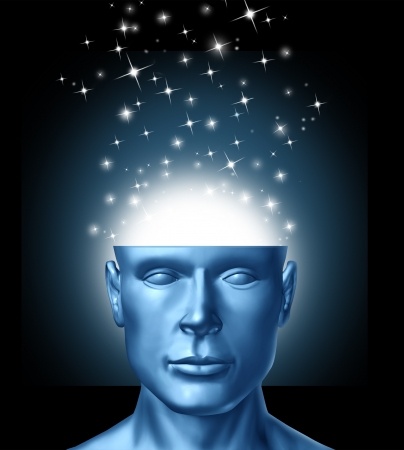In preparing my series of chapters on the state of psychological research on consciousness, I naturally wondered about my own experience.
We all constantly receive information through our five senses. Some of it reaches our consciousness, some of it does not. The theory ofglobal workspace, proposed by Baars, sheds some useful light on this subject. According to this hypothesis, our senses send data to the brain; if this data is consistent with each other and with information already stored, it can emerge into consciousness. But one element seems to be missing: emotion.
Nothing like a scream of terror or a slamming door to make us become conscious again of our environment. Fear, sadness, suffering are as many powerful triggers of awarenessThe problem arises when emotion invades the entire field of consciousness, making balanced processing of information impossible.
Intuition: A sixth sense on the fringes of science?
I will leave aside here the complex question of the phenomenal consciousness, to interest me in another equally mysterious phenomenon: intuition, sometimes called sixth sense.
The two subjects are close, but intuition, unlike sensory perceptions, does not rely on no biological process identified. It does not appear to follow the brain's classical information processing channels. For this reason, the scientific psychology, influenced more by medicine than by philosophy (at least in Europe), has long left this subject aside.
And yet, for those who know how to listen, intuition imposes itself on consciousness. She crosses the doors of the global workspace without going through the usual filters : perception, memory, reasoning. Intuition seems to arise out of nowhere, and yet it directs, it guides. Could it not be another type of consciousness, not yet theorized by science?
Limited consciousness or expanded consciousness?
Conscience also imposes thoughts and therefore presents an aspect cognitive. But these thoughts can be more or less limited, depending on the scope of our gaze.
Let's take an example: you decide to go on vacation. You think about the destination, the budget, and who to entrust your cat to. At this point, you are aware of the immediate consequences for you. But what about the indirect impacts ? On your surroundings, on the environment, on the local economy, or even on social inequalities?
This question invites us to think that there exists several levels of consciousness. Can we imagine a expanded consciousness, a holistic consciousness, able to perceive all aspects of a situation, beyond the ego and individual reasoning? A ethical and systemic awareness, embracing the interconnection of the living?
Towards a psychology of expanded consciousness?
The question of the responsibility is central here, and yet scientific psychology is not yet fully interested in it. And yet, examples abound.
A conflictual divorce, for example, can bring out wounded egos and deep suffering. Some, unable to recognize their dark side, will seek to revenge, even if it means harming others, or obtaining compensation (often financial) for suffering experienced as unjust. Others, on the contrary, will see this crisis an opportunity for development and self-knowledge.
Why these differences? What allows certain individuals toaccess a broader consciousness, more lucid, more spiritual? Could it be a question of personality ? Environment? Education? Or do certain mental disorders simply prevent access to this deep consciousness, or would they come from alter the very perception of internal signals?
What we will explore in future articles
These gray areas of consciousness, between intuition, spiritual intelligence, ethical responsibility and psychopathology, will be at the heart of my next articles.
Can we expand one's consciousness ? And if so, how ? What tools, practices, and paths can connect cognition, emotion, intuition, and inner wisdom?
This questioning, at the crossroads of psychology, philosophy and lived experience, remains open – but deeply necessary.



